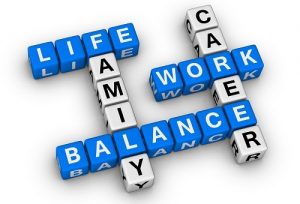
The Nation Comes Together In February
National Wear Red Day: Friday, February 7, 2020
On the first Friday of every February, which has been designated as the American Heart Month, the nation comes together, igniting a wave of red from coast to coast. From landmarks to news anchors and neighborhoods to online communities; this annual groundswell unites millions of people for a common goal; the eradication of heart disease and stroke.
American Heart Month, a federally designated event, is an ideal time to remind Americans to focus on their hearts and encourage them to get their families, friends and communities involved. The first American Heart Month took place in February of 1964. It was proclaimed by President Johnson, via Proclamation 3566, on December 30, 1963. The Congress, by joint resolution on that date, requested the President to issue annually a proclamation designating February as American Heart Month. While it is a federally designated month in the United States, it is so important for everyone to realize that cardiovascular disease knows no borders.
GO RED FOR WOMEN is the American Heart Association’s global initiative to end heart disease and stroke in women. Launched in 2004 to close the gap in awareness, Go Red quickly expanded into a worldwide movement dedicated to removing the barriers women face to achieving good health and wellbeing. Heart disease is the number one killer of women, killing more women than all forms of cancer combined. 88% of women worry about their mom’s health.
Learn what it means to Go Red For Women to help women in your life to fight back:
G: Get Your Numbers
Ask your doctor to check your blood pressure & cholesterol.
O: Own Your Lifestyle
Stop Smoking, lose weight, exercise & eat healthy. Only YOU can do it!
R: Realize Your Risk
We think it won’t happen to us, but heart disease kills one of three women.
E: Educate Your Family
Make healthy food choices for you and your family. Be sure to stay active.
D: Don’t Be Silent
Tell EVERY woman you know that heart disease is the number one killer.




| Greg Winer | February 3, 1997 |
| Kim Rymer | February 7, 2002 |
| John Rymer | February 5, 2004 |
| Mike Barfield | February 23, 2004 |
| Randy Smith | February 14, 2008 |
| Rafael Ramirez | February 27, 2012 |
| Brad Parsons | February 1, 2013 |
| Brent Parsons | February 1, 2013 |
| Jose Bahena | February 4, 2013 |
| Eric Pearce | February 16, 2018 |
| Orville Cupit |
February 7, 2019 |

Did you know that Tri-Lakes offers a Employee Assistant Program?
Yep, we do! Guidance Resources offers services to employees and their families that can help deal with every day challenges such as personal issues, planning for life events, managing day to day life issues that may affect work, health or family. It is all confidential and free. You can call anytime, 1.888.628.4809 or log on at www.guidanceresources.com and use the company WEB ID: GALLAGHER
If you have any questions or need any help with logging in, please call Shana at our Gillham office.
See the full article under the Health & Wellness section!

| JOSEPH GRACE | KEITH WESLEY | BILLY BOB HUBBARD |
| JEFF TURNER | BRAD PARSONS | TRAVIS EASTEP |
| JOSEPH LUPER | JAMES GREER | BRENT PARSONS |
| TONIE JOHNSON | GIOVANNI GRANADOS | GLEN SMITH |
